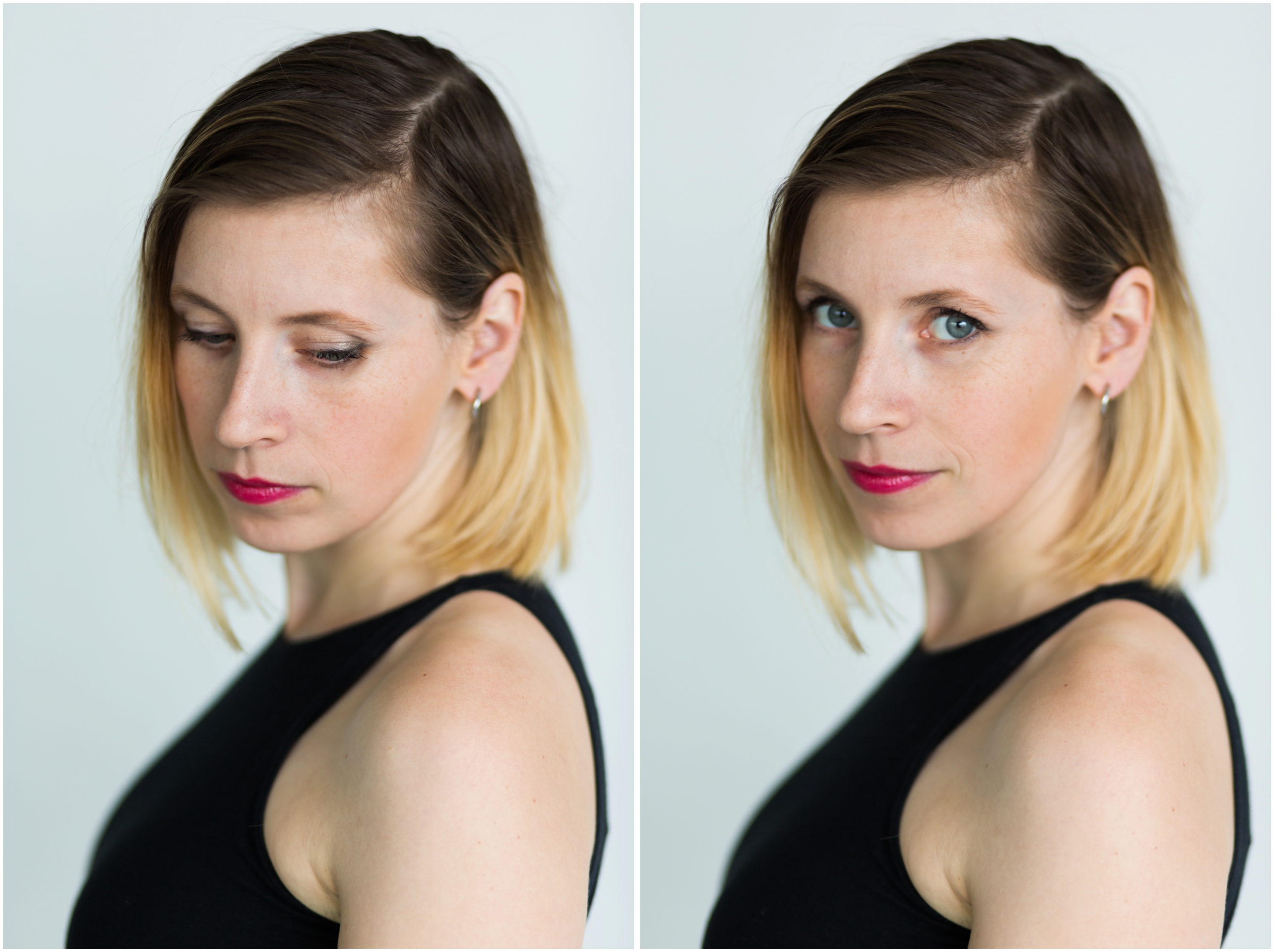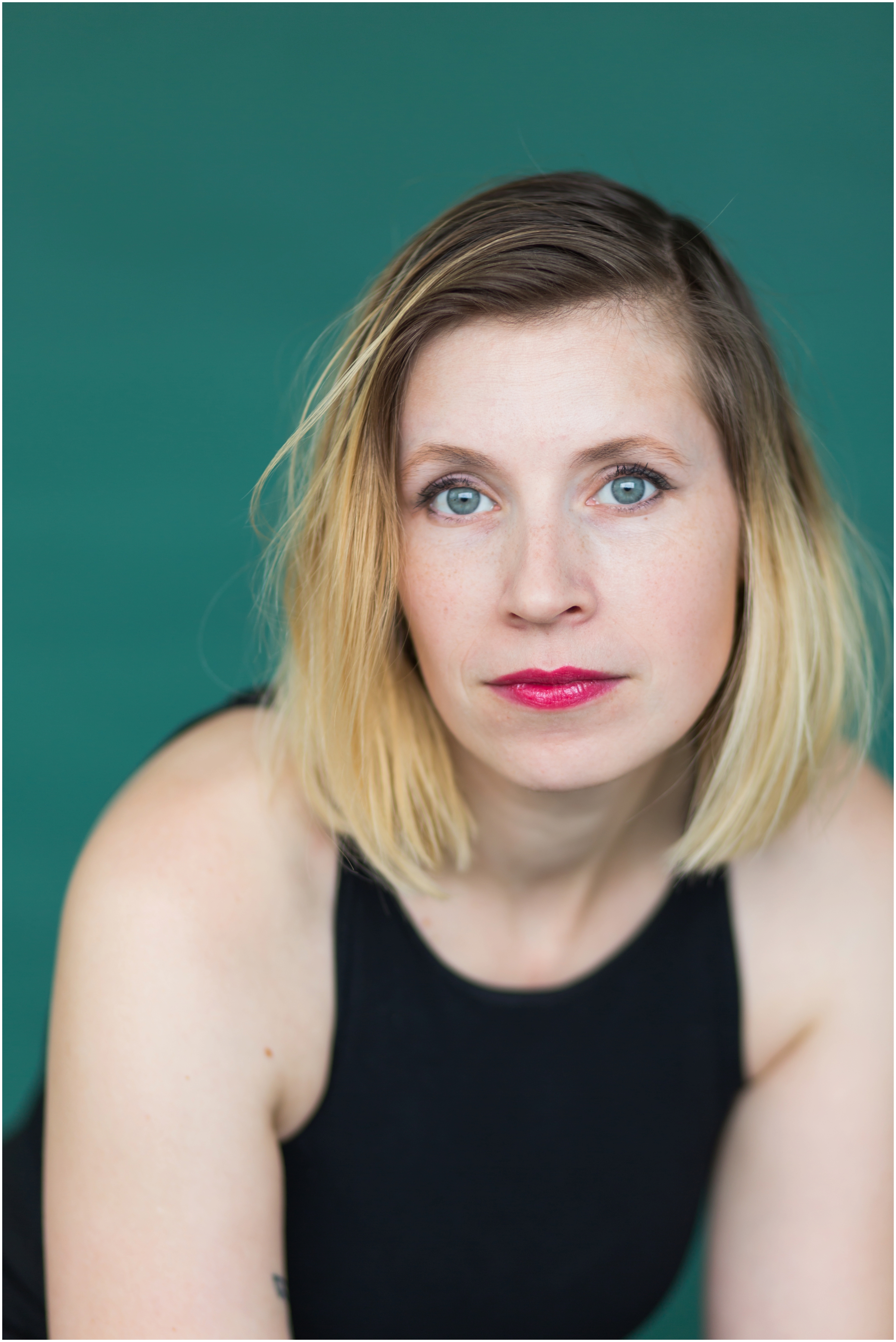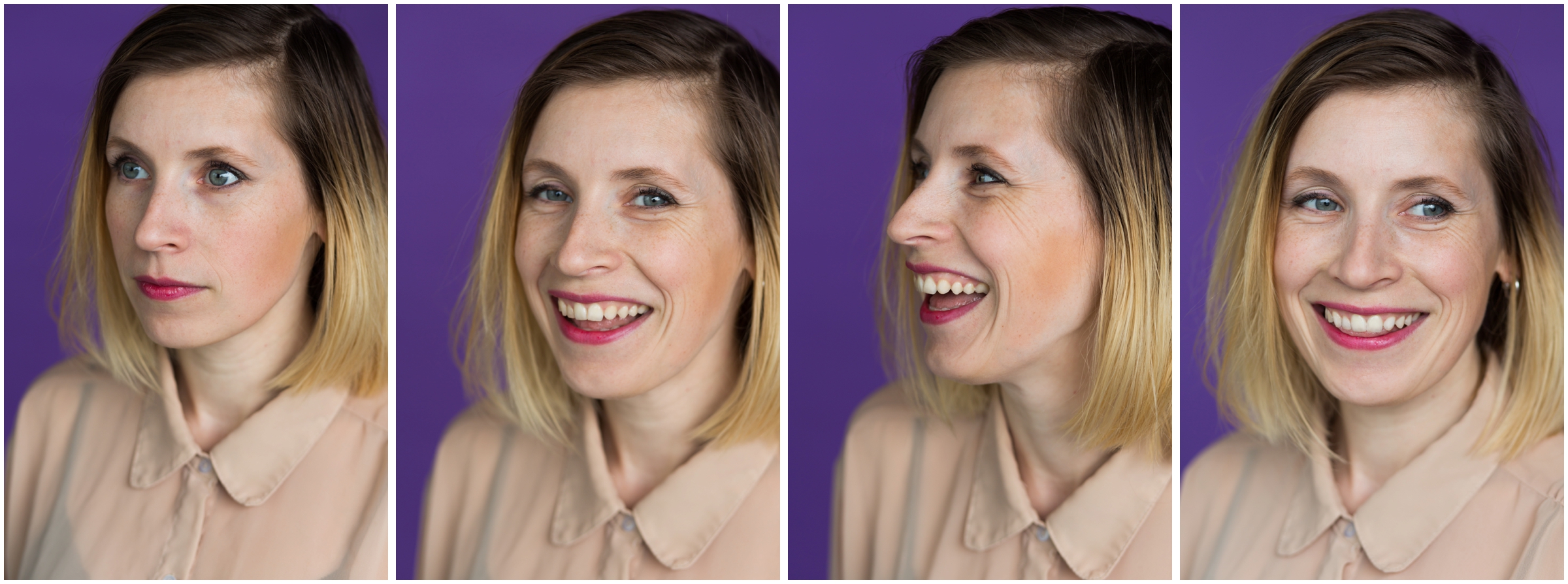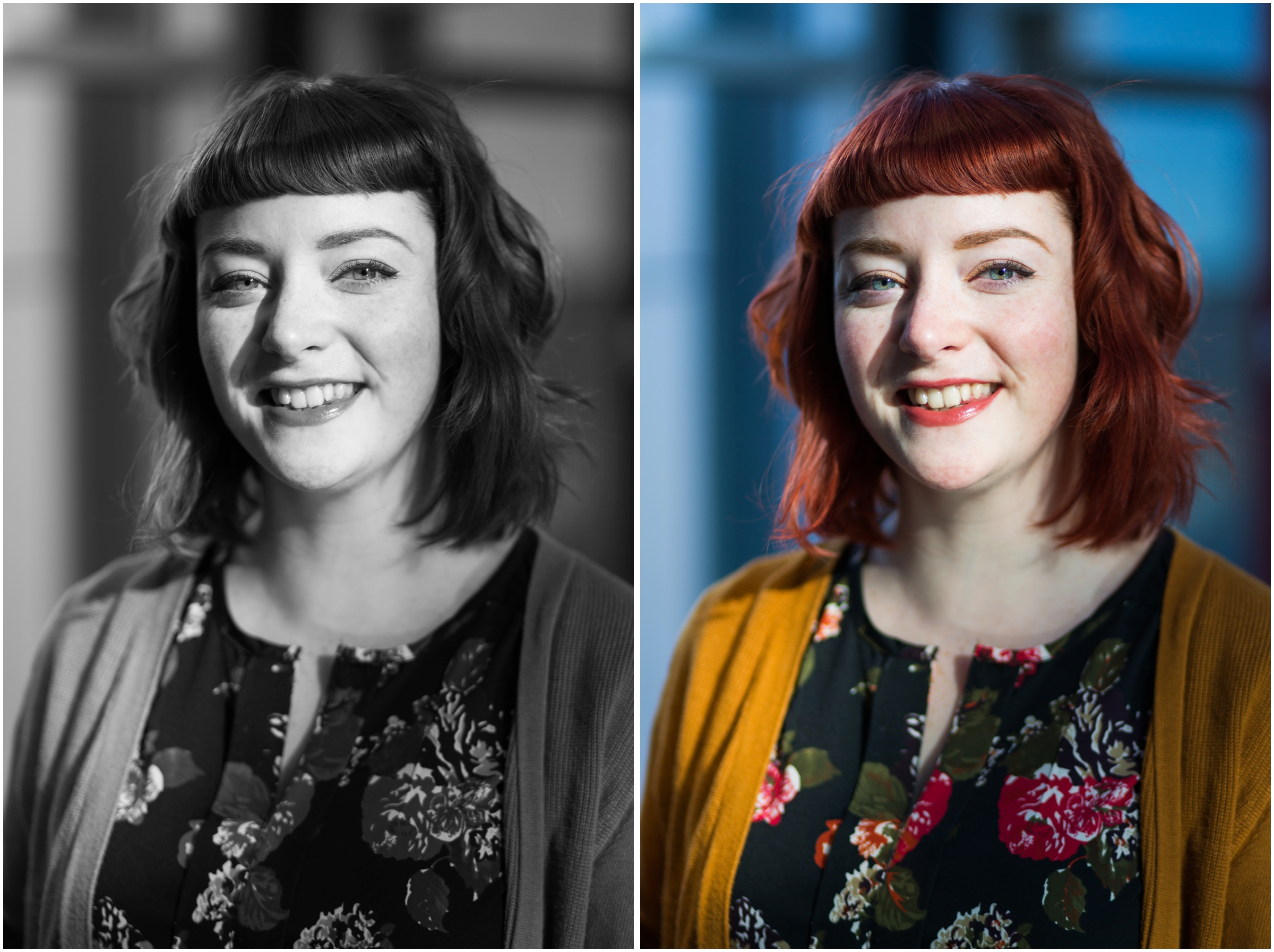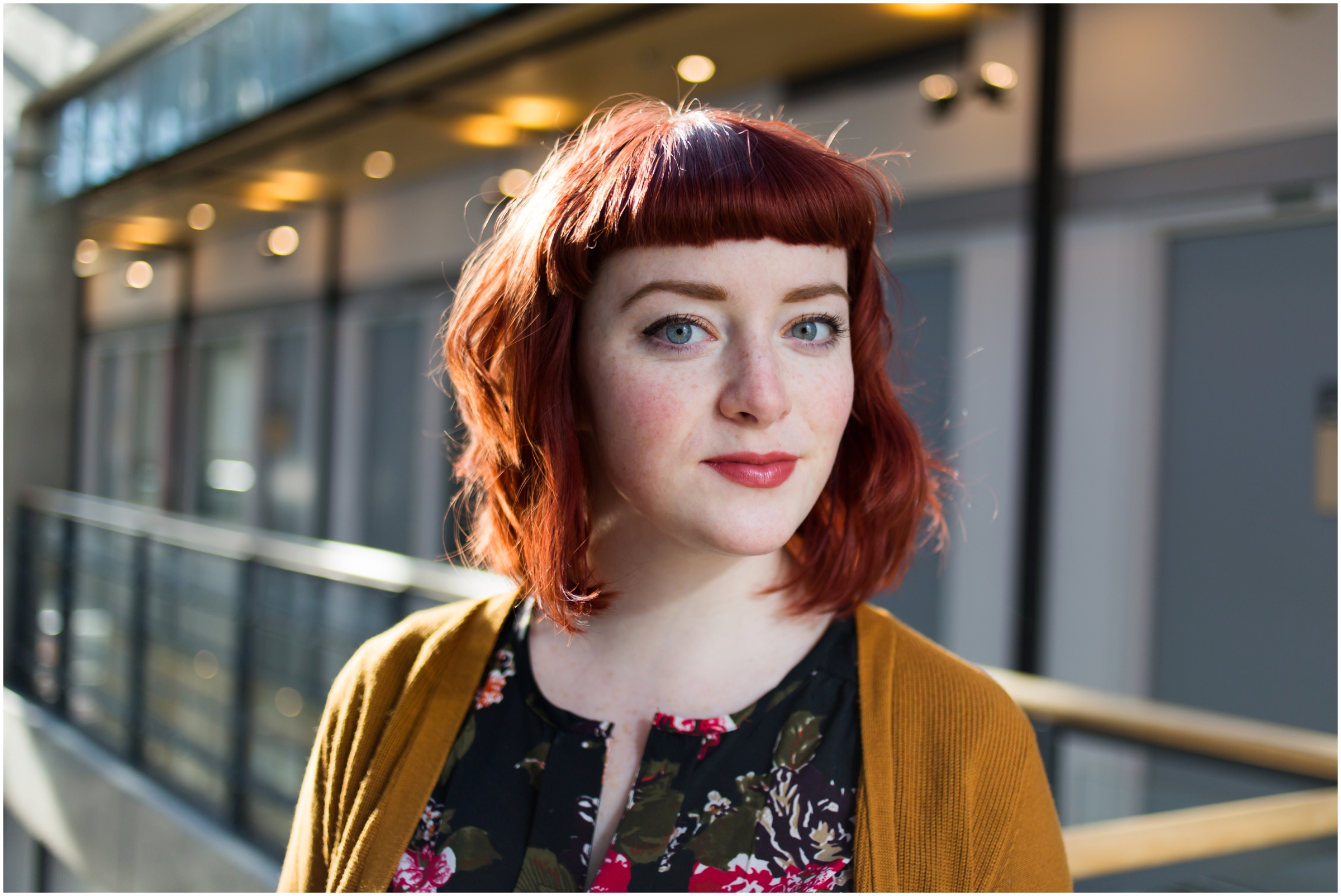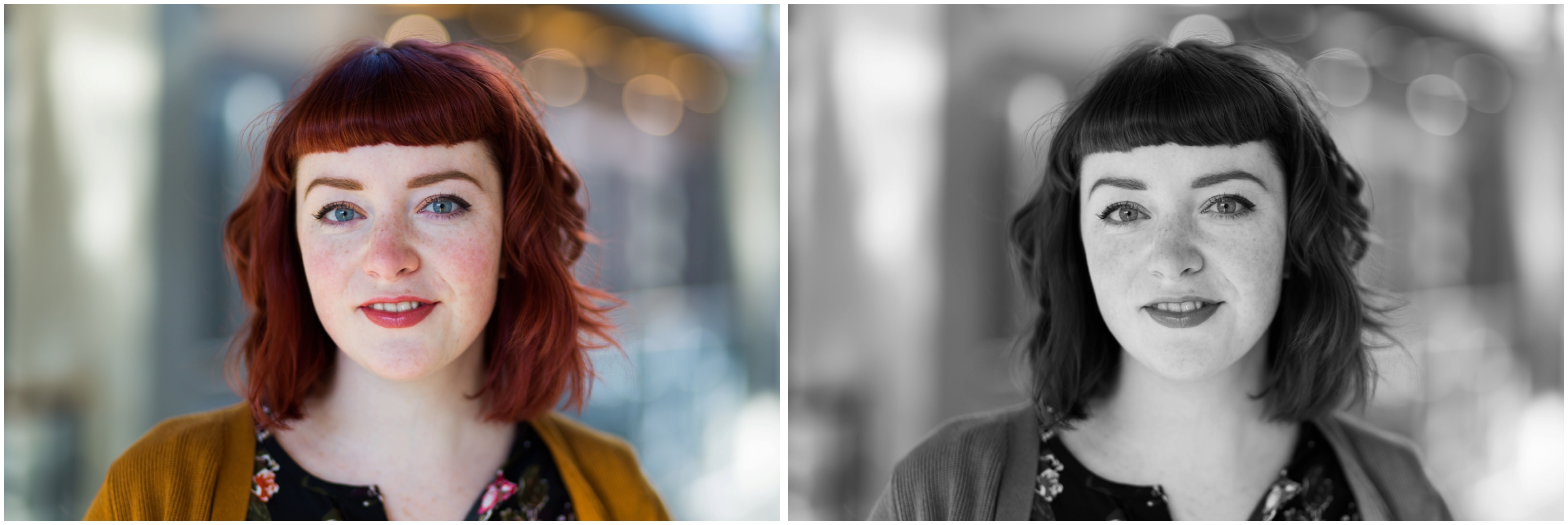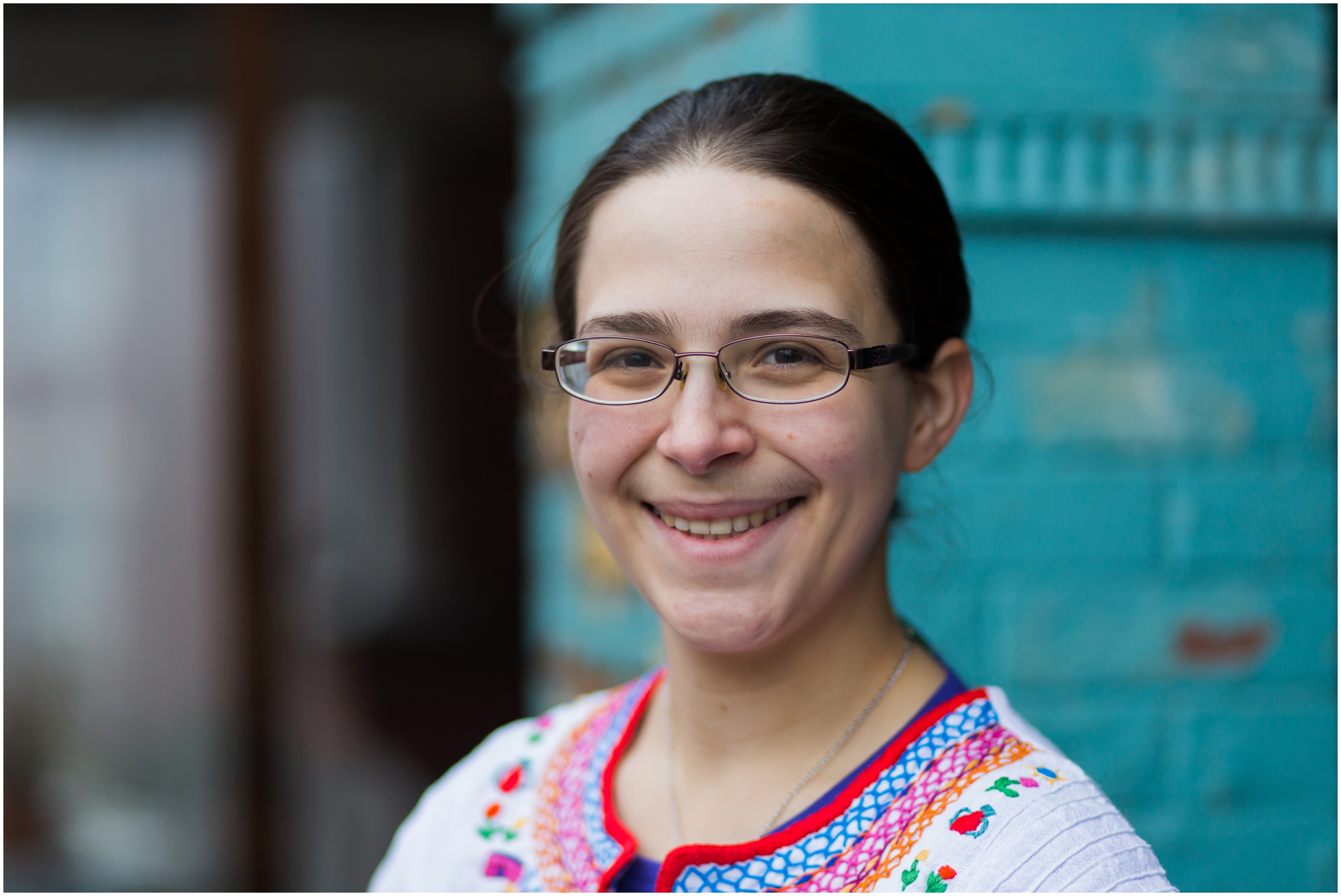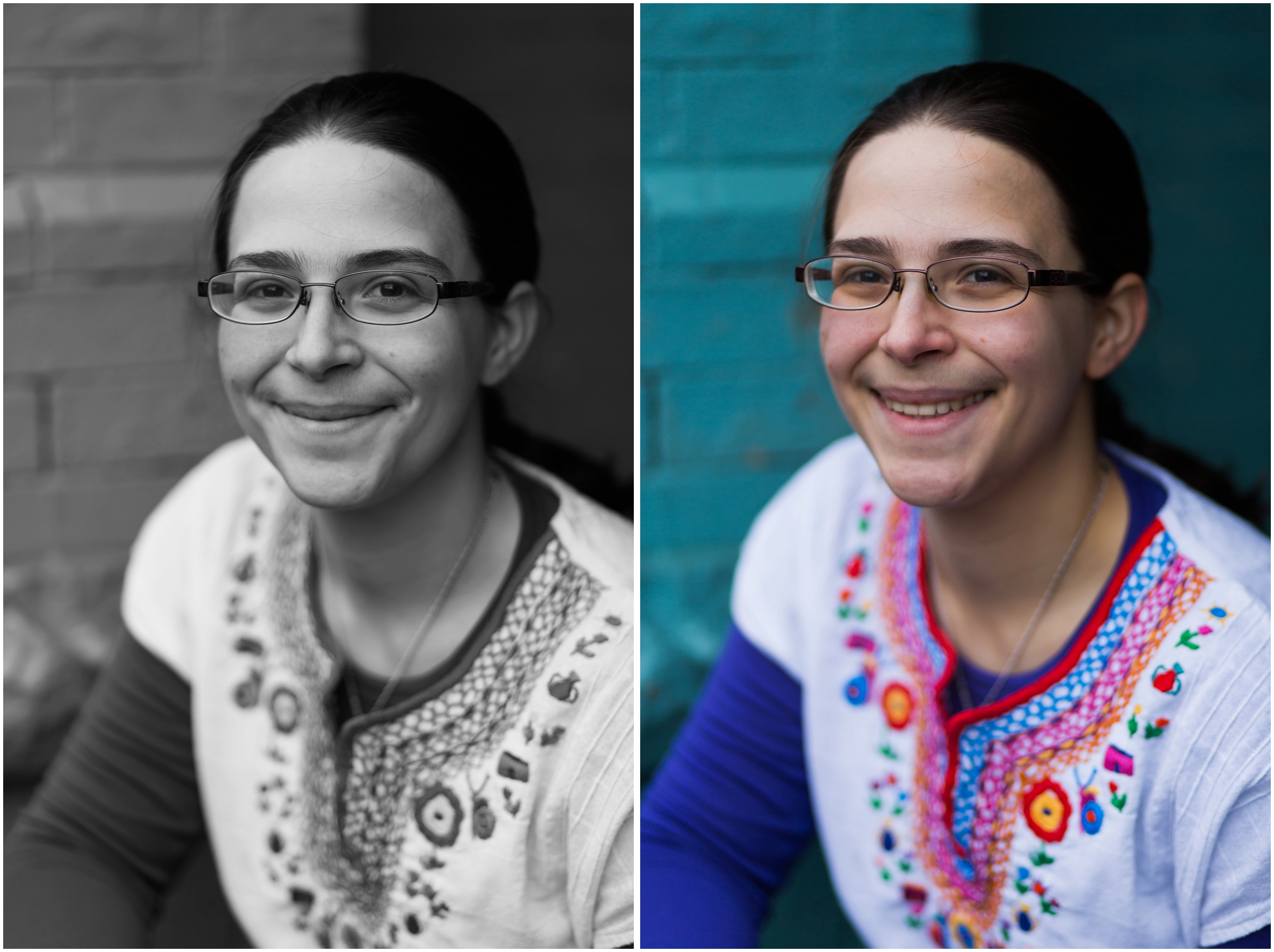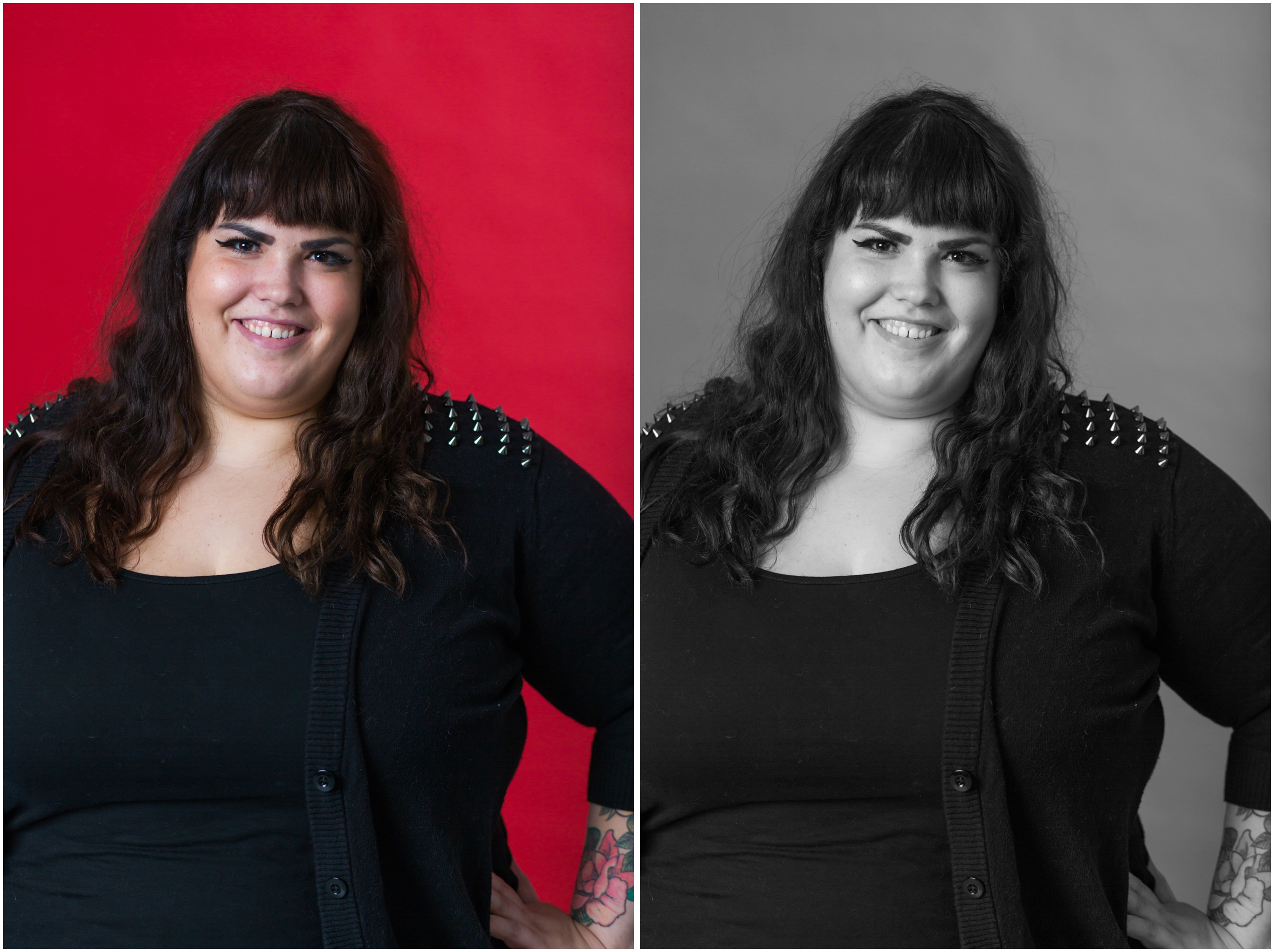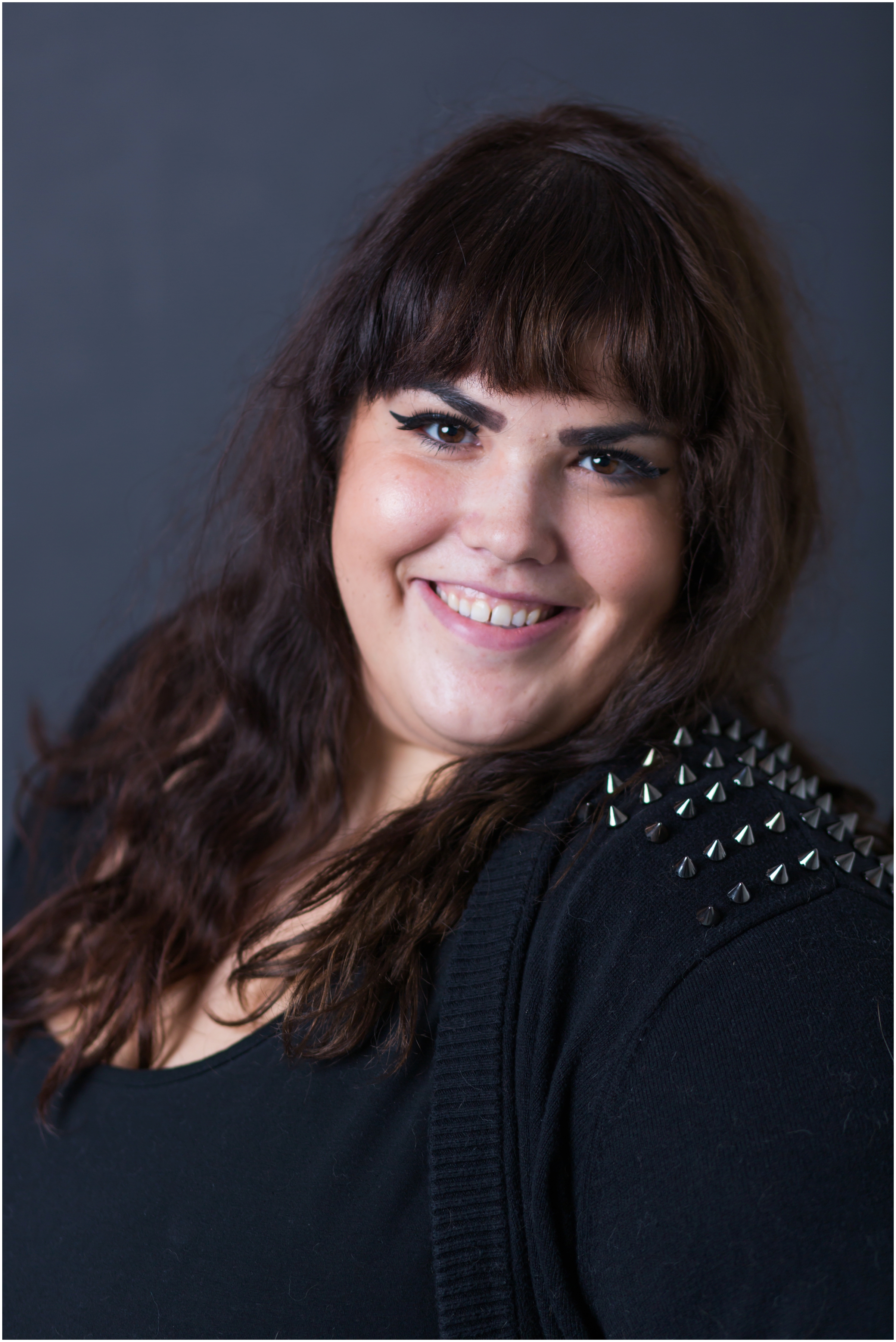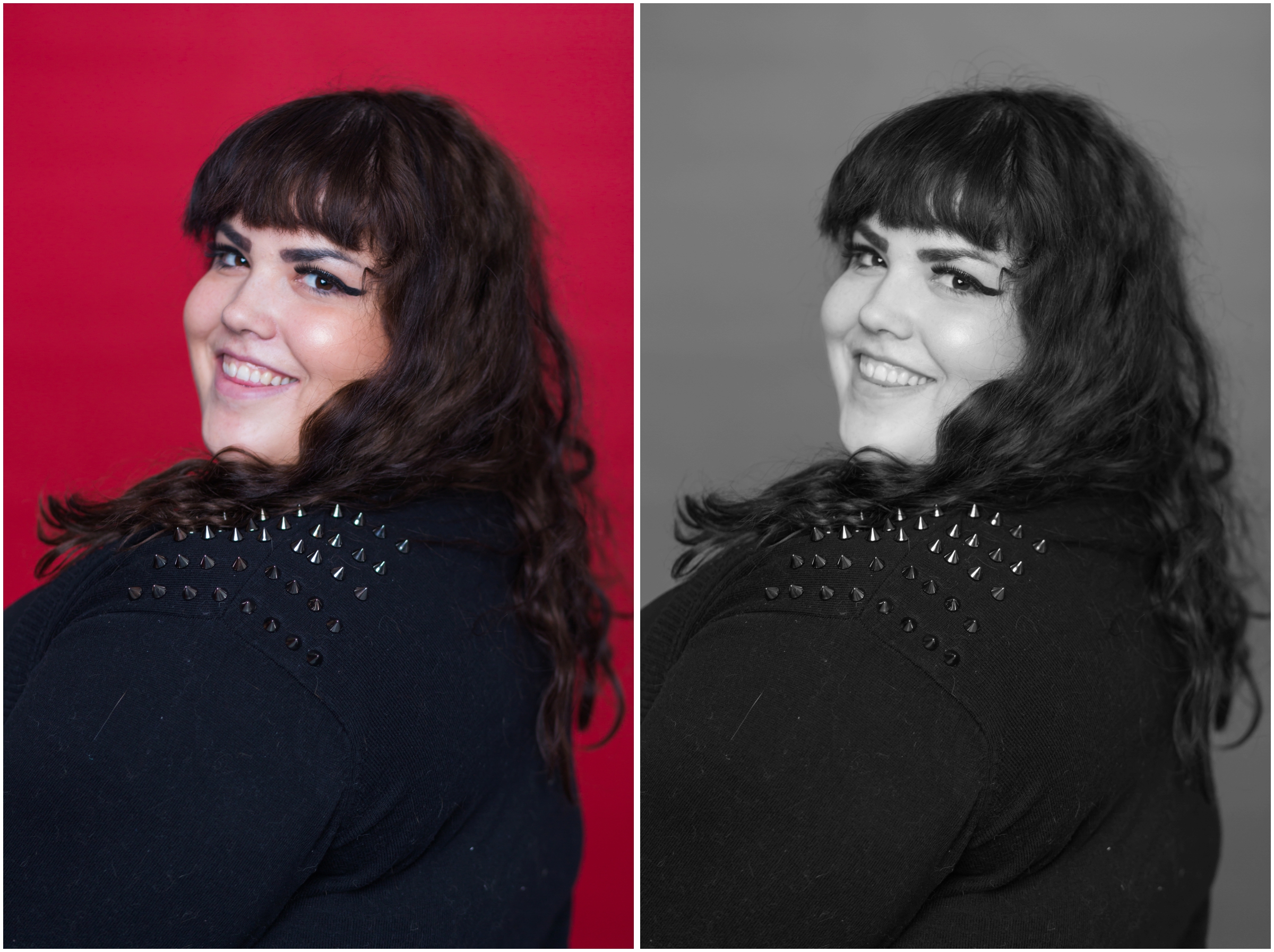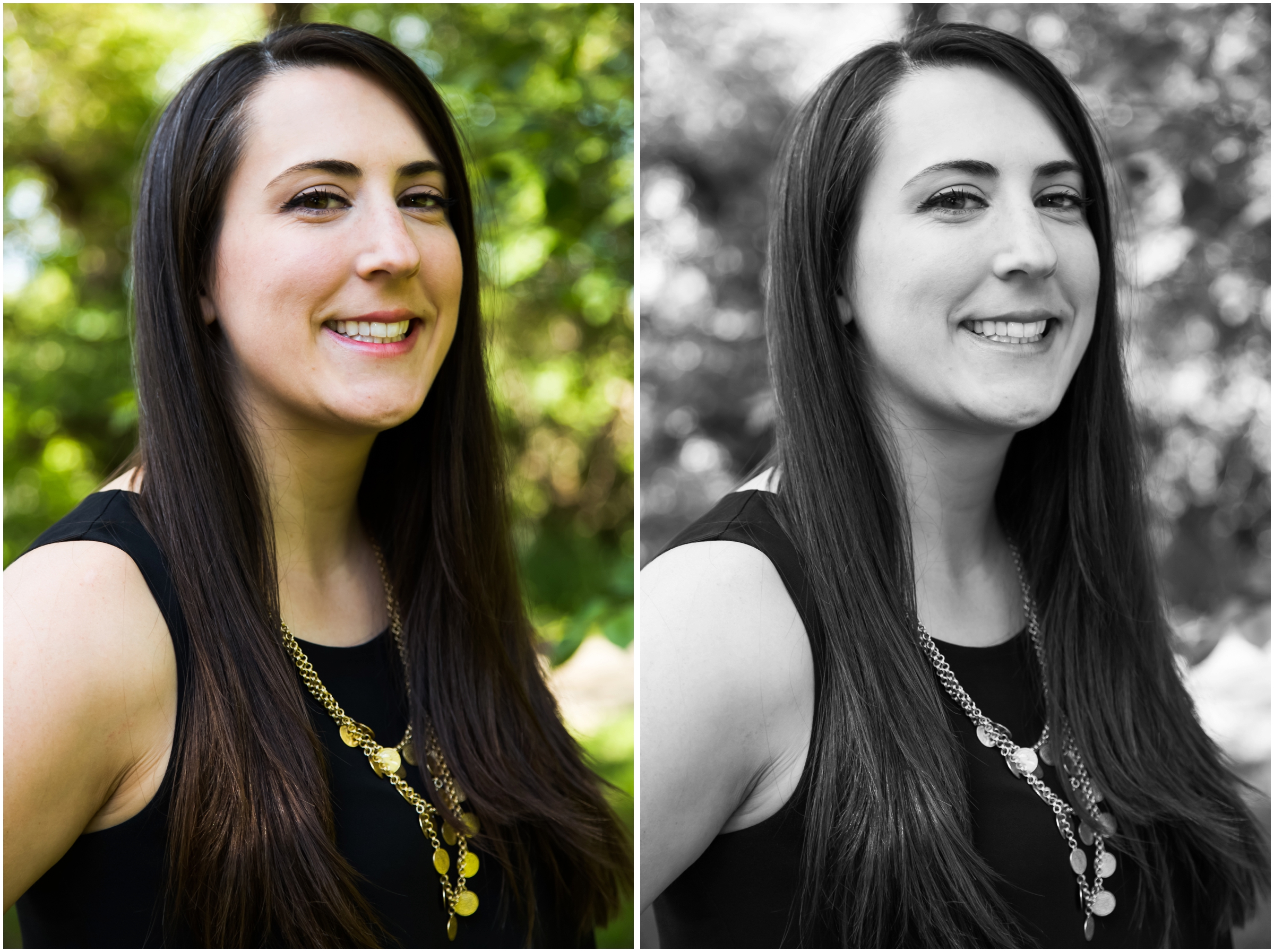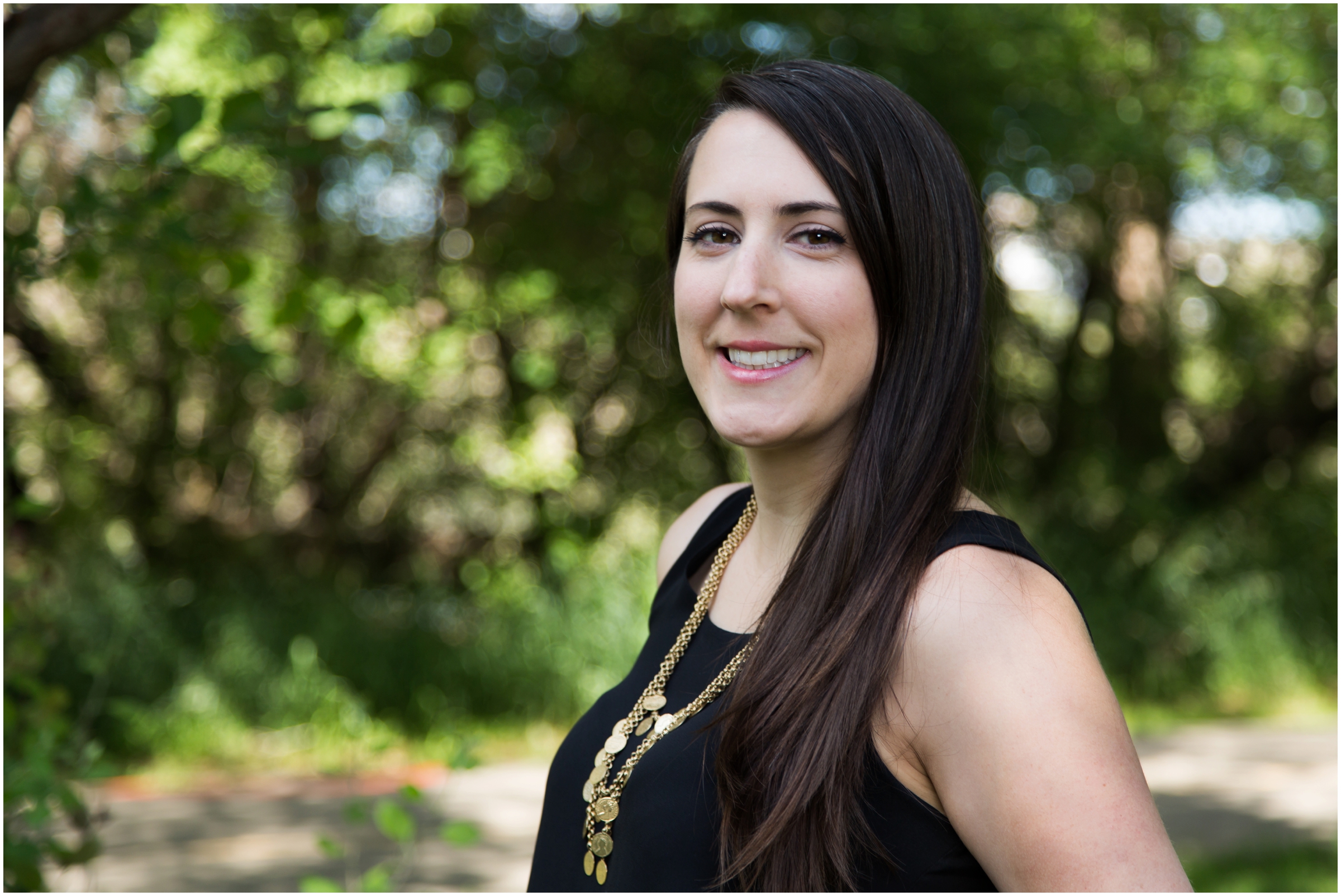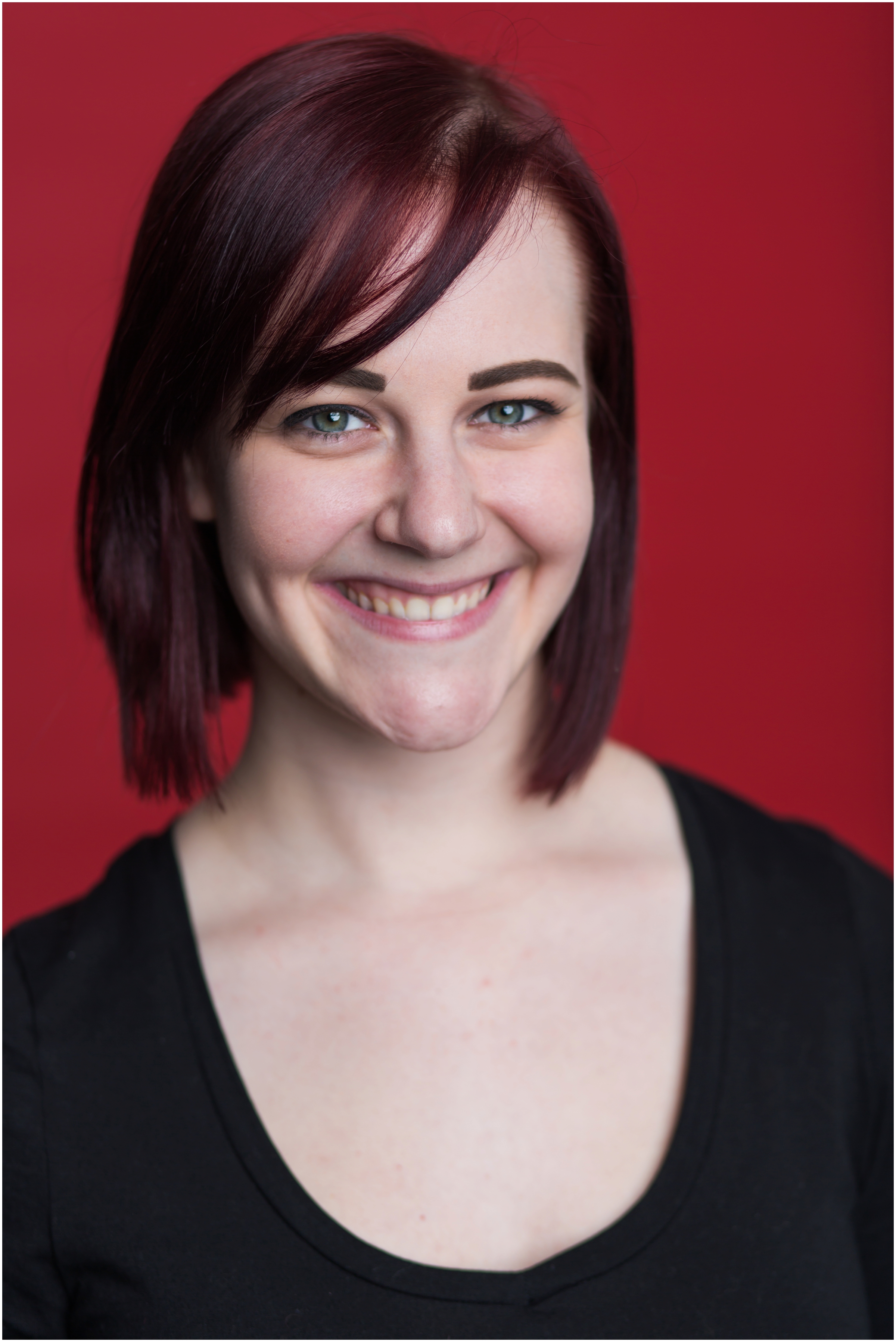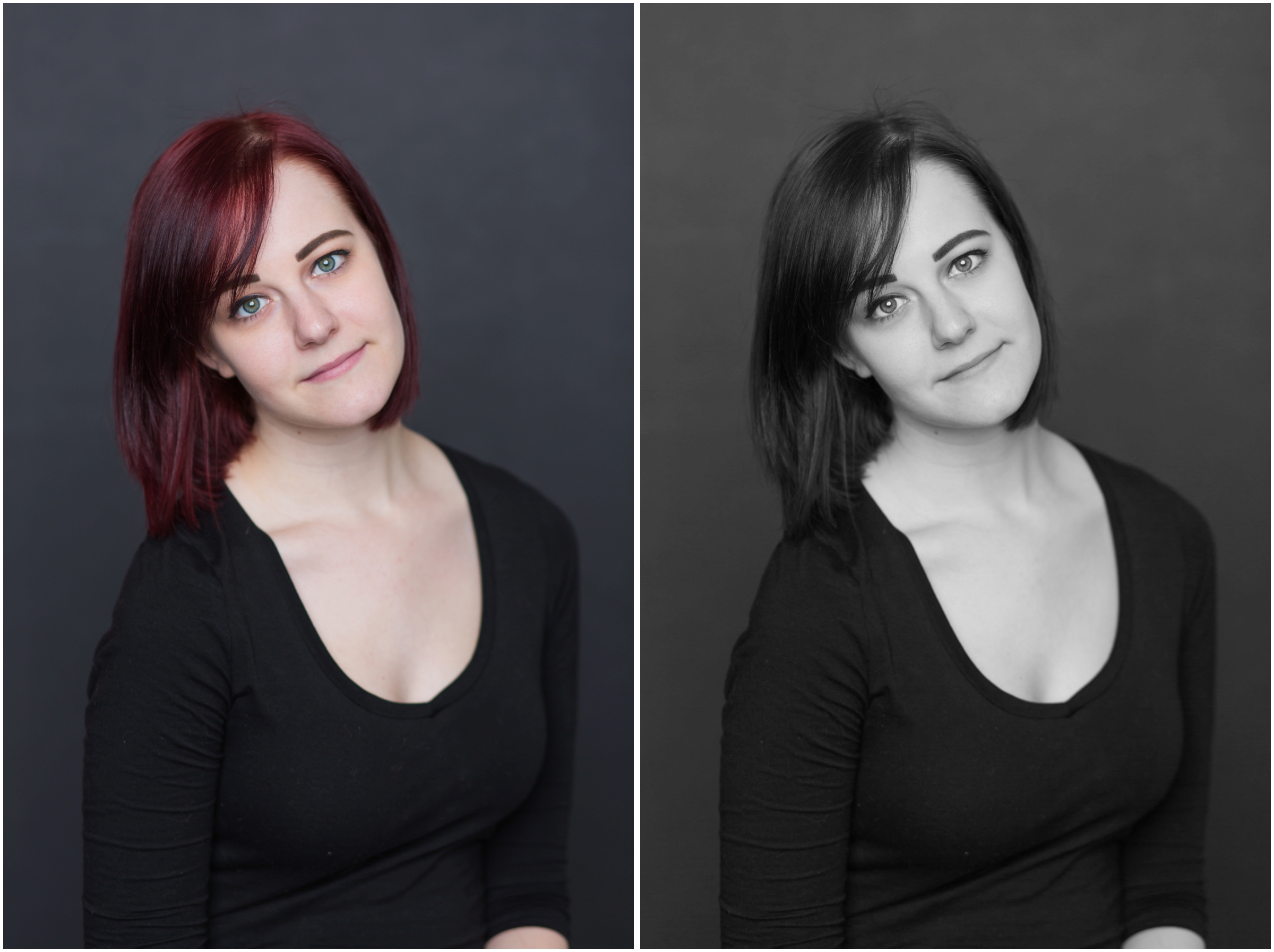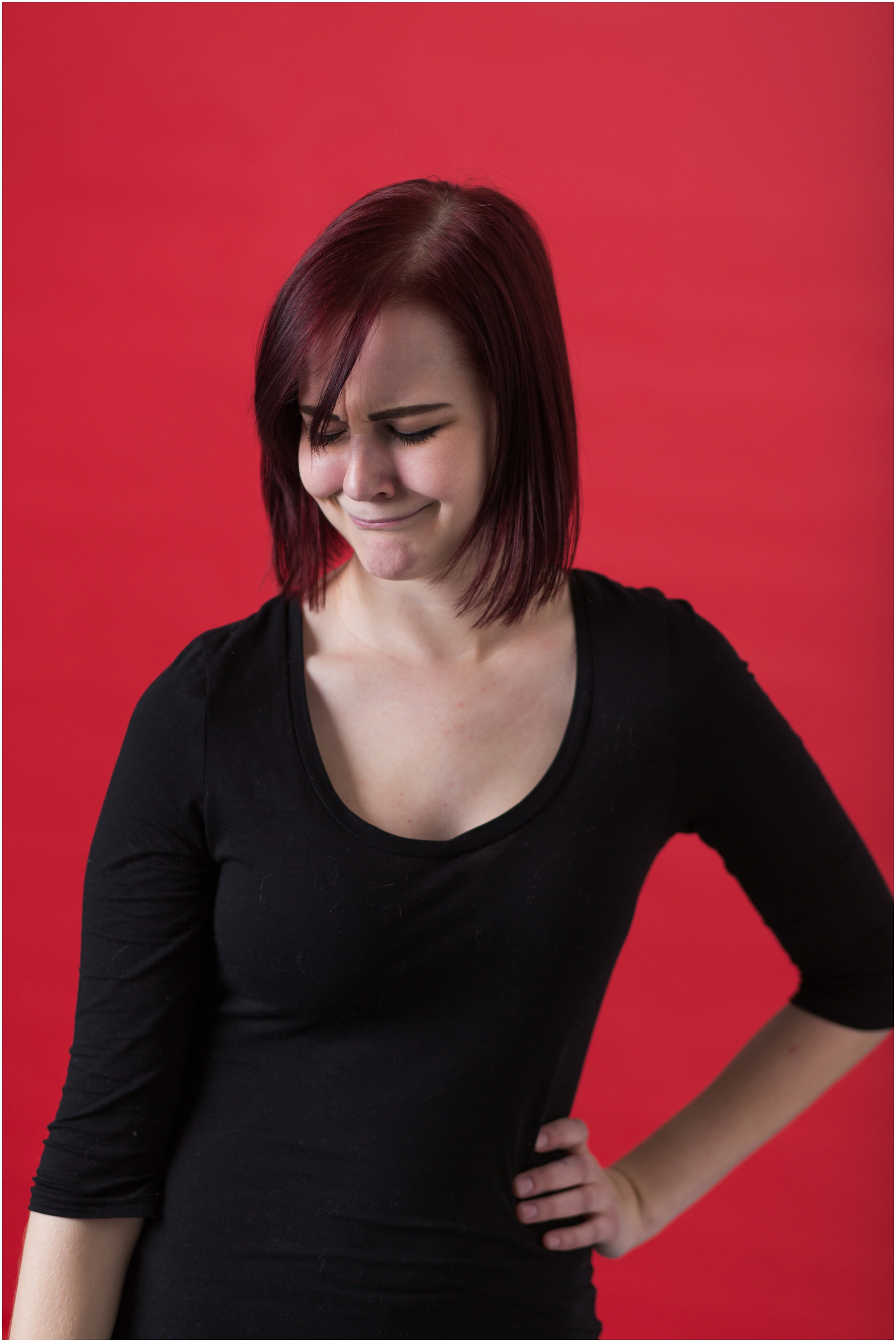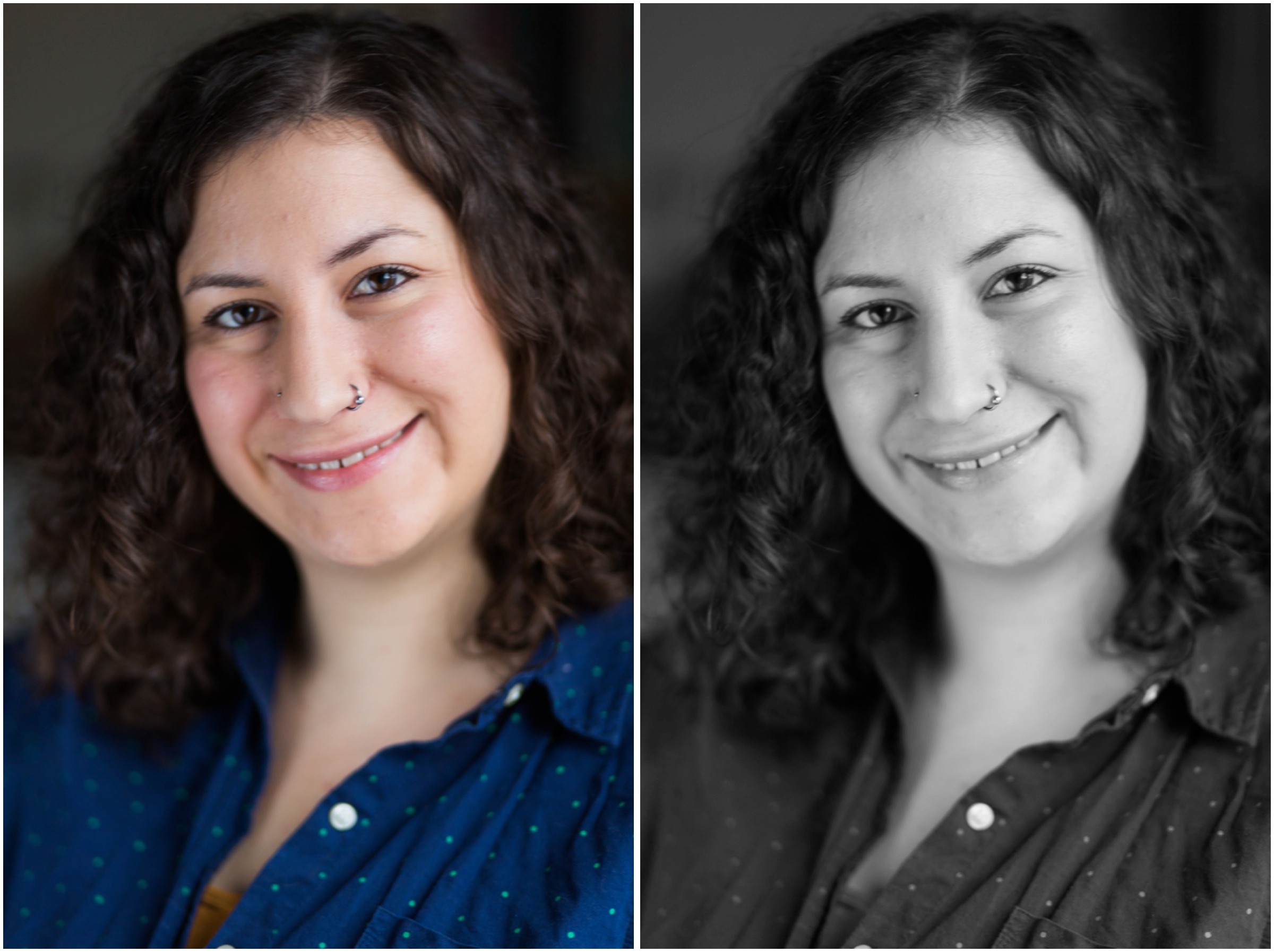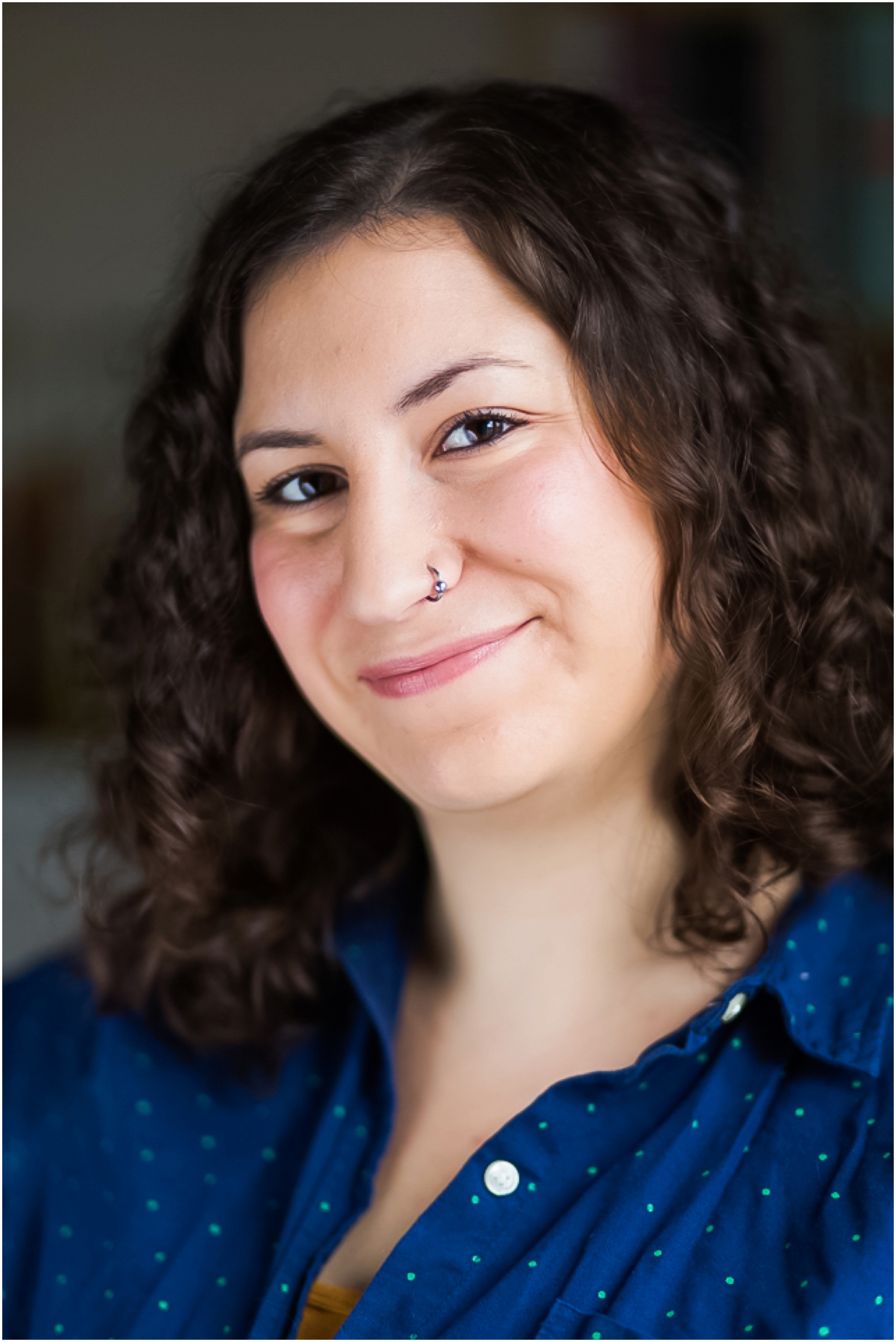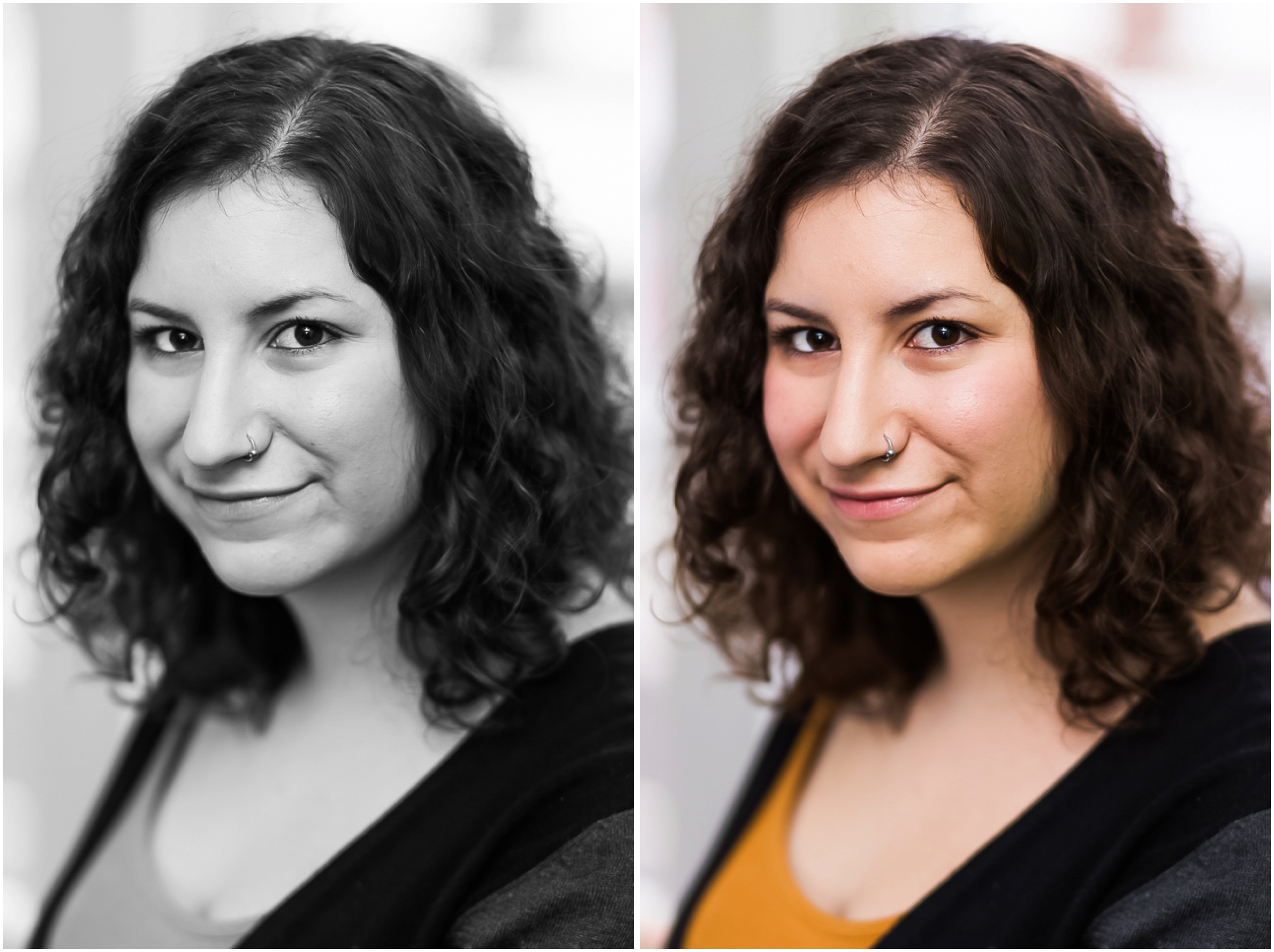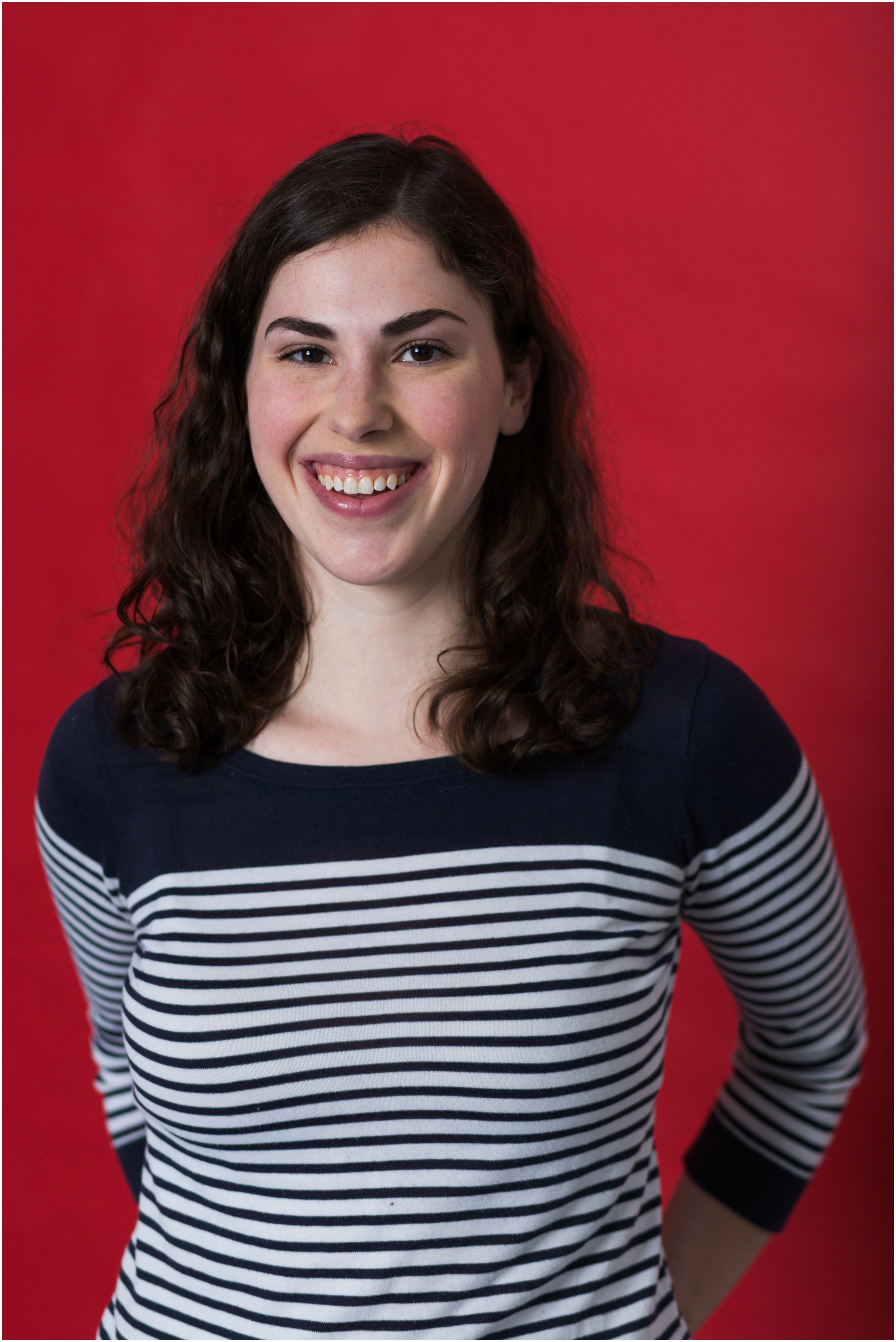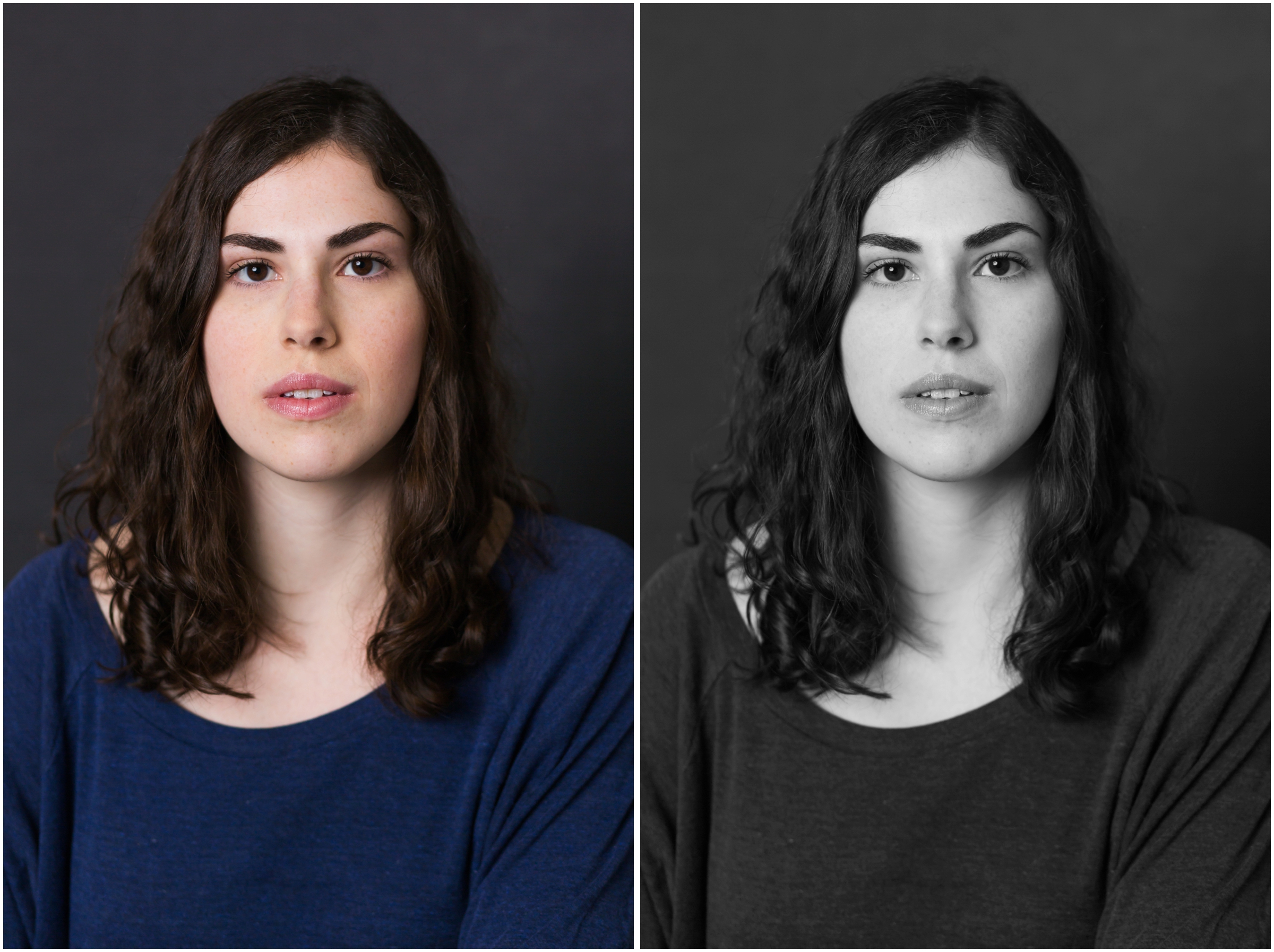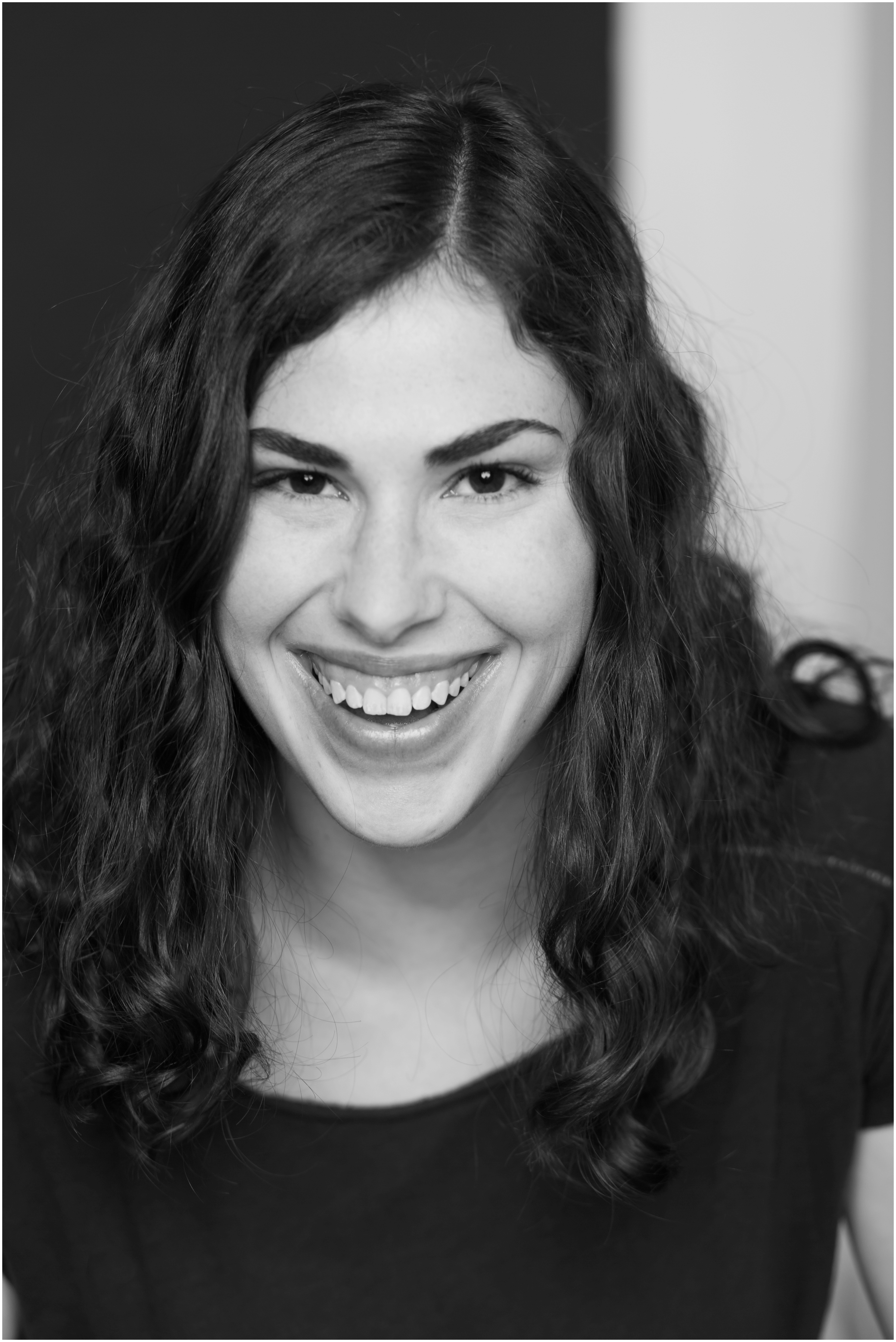On International Women’s Day, you’ll likely come across a bisquillion articles on the obstacles and challenges faced by women today. I’m not going to attempt to dissect these issues using current feminist theory; instead, I’d like to share some words and photos from ten totally kick-ass women I’ve had the opportunity to photograph over the past year. I’d like to open the discussion to some of their ideas, and celebrate some of their accomplishments over the last 365 somersaults. So have a scroll, have a read, and follow these incredibly talented gems on Twitter.
Kat Burns Musician Kashka
This past year I've managed to keep up my own commitment to posting a video each week on my YouTube Channel, which I'm happy about. I really enjoy it, and it has helped me in many ways, including keeping responsibility for my own content creation, becoming more comfortable talking to the public, and being more excited than nervous to try new things, even if they might fail.
Ladies in rock and metal likely have it harder than me, but I've definitely felt a little put aside over the years. I think the more women are involved in male dominated fields, the more things will change. It's so great seeing more ladies in production and loving sound tech jobs now.
Camille Robert Grad Student (History) and Feminist
Through my Master’s thesis, I’m investigating feminist Québecois women’s discourses on the subject of housework. I am attempting to show how these feminist’s reflections made it possible to dissociate housework from a “feminine nature” and to recognize it as socially useful labour. Still, even today, women execute about 10 hours more housework than their male partners, on average. Jobs that are associated with “care” (such as nurses, teachers, educators, etc.) are still mostly occupied by women, who are asked to accept lower salaries and to work additional hours. My hope is that this research will renew the importance of this feminist analysis.
In history, as in many other fields of study, some female students — especially those who identify as feminist — are faced with sexist attitudes from their male colleagues. The inclusion of women’s history is generally done in the margins of “general” history. In university, there are some courses in women’s history that are offered, but the realities of women’s lived experiences are, generally, very minimally included in core courses, if at all. At conferences, communications about women’s history are generally grouped together, apart from the others. I think it’s important to take women into account throughout our study of history, and to not interpret women’s history as something separate. That can happen by insisting that it be included in all of the material that is seen in class. This applies not only to the field of history, but to literature, sociology, film studies, philosophy, etc.
It wasn’t my first time attending the demonstration on March 8th, but I particularly remember the demonstration in 2012, during the student strike. It was organized by a committee of independent feminists and, throughout the march (which was gender mixed), the men took up all the space, yelled louder, did not feminise their slogans and stayed toward the front… It was International Women’s Day and we were still being pushed aside! It was really frustrating. Afterwards, some women denounced the situation. It raises the central question of what role men can play as allies. For me, it really showed the necessity of sometimes organizing non-mixed demonstrations.
You can connect with Camille on Twitter or Instagram.
*Translated from French.*
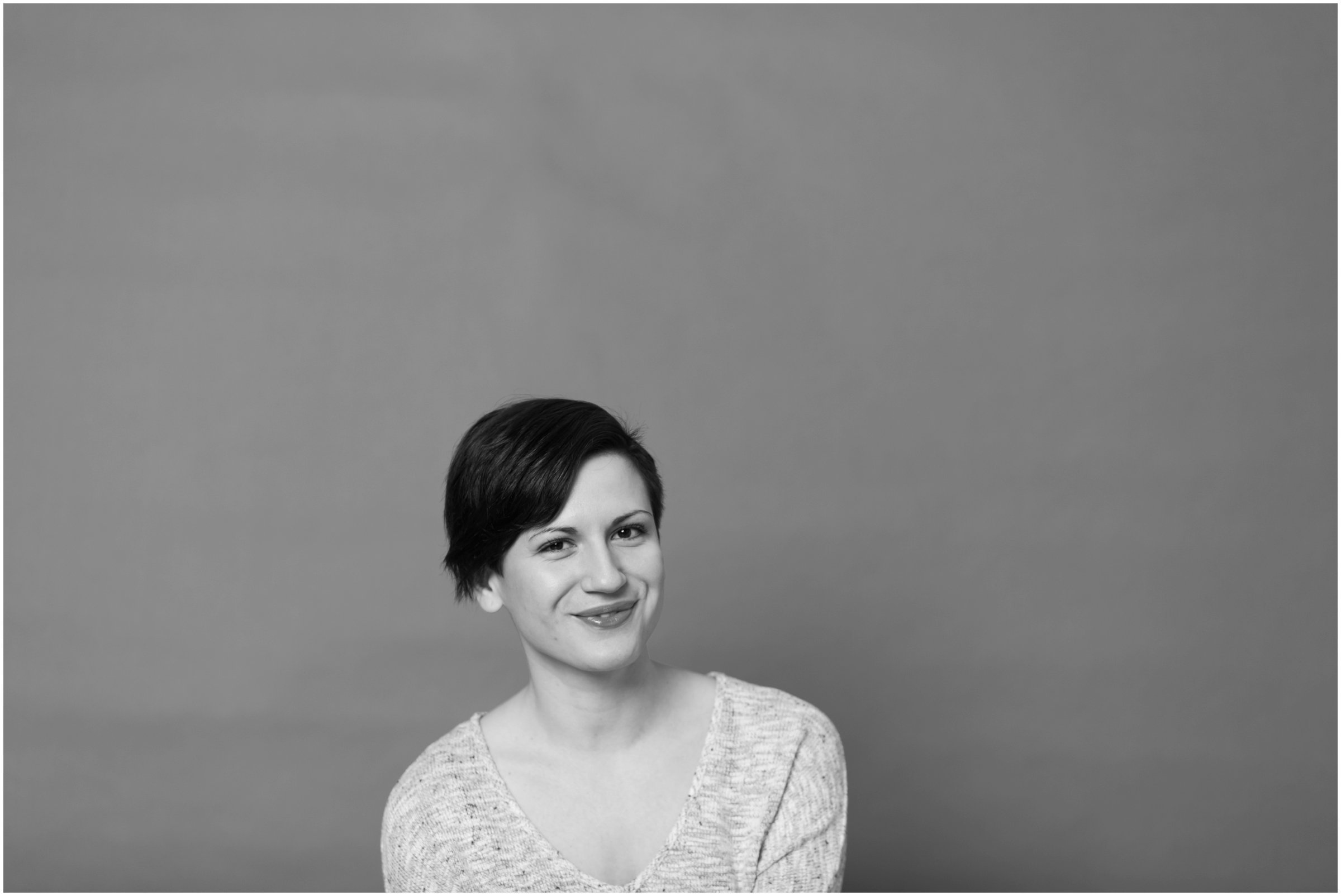
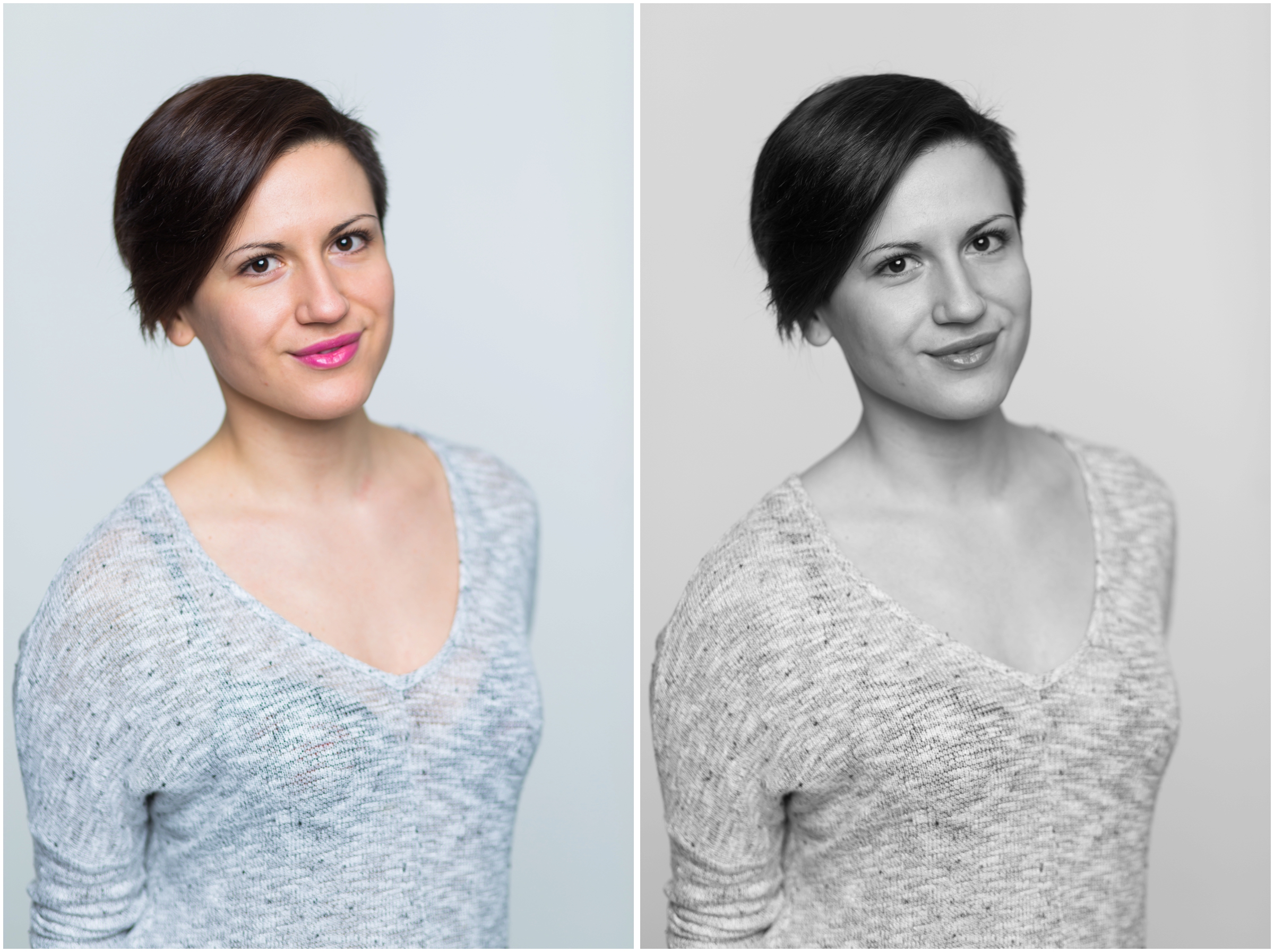
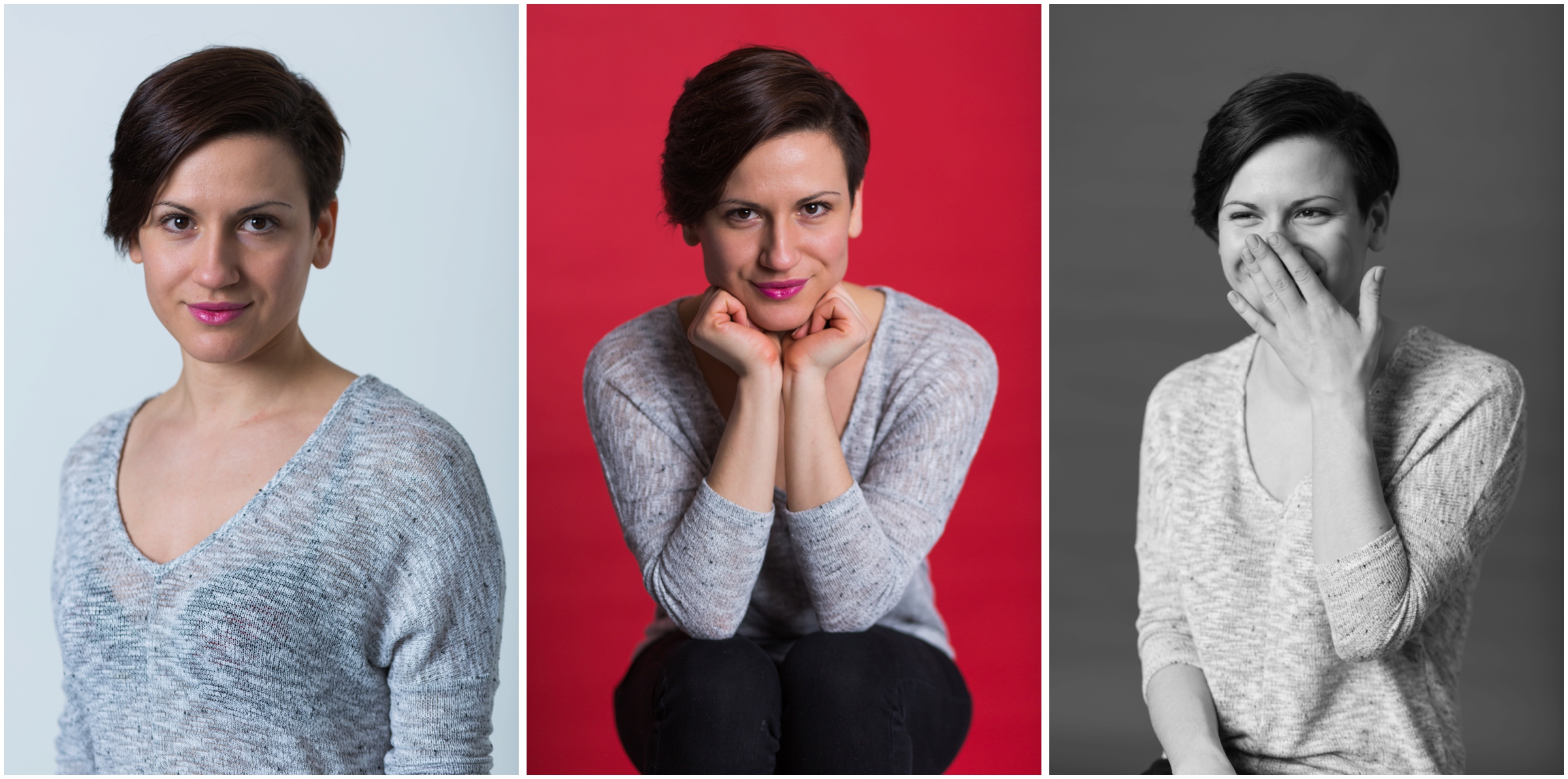
Borana Makri Stand Up Comedian and Producer
When I was younger, I was plagued by too much anxiety and self-doubt to pursue anything performative. Also, coming from a family of artists, I never felt I belonged in that world, but the older I get, the more I realize the only thing that matters is what you do, and how often you do it. Whenever I feel intimidated by people who I think are ahead of me in whatever measure, I make an active effort to turn it into inspiration and gratitude for the spaces they create and the voices they amplify. Also, getting my mental health in check has definitely helped me be more courageous and take more risks.
In the realm of comedy, something I’m very proud of is the show I host and produce every month, Sit Down and Shut Up in Toronto. It’s been ten months since I’ve started it, and it’s been going strong. I’ve built a community of loyal fans, created a reputation for the show, have gotten to work with people I respect and idolize. It’s my own little goalpost every month, and it keeps me very connected to my passion. It’s a way for me to exert my own small influence in the comedy world by supporting the kind of comedy I believe in.
The most memorable International Women’s Day I’ve celebrated was probably in 1997 because my mom organized a Women’s Day event at my school. We still lived in Tirana, Albania at the time, and my mom had founded a women’s organization called the Association of Albanian Mothers. She organized shows and events geared towards women and art. On this particular Women’s Day, she organized a tree-planting festival at my school, which doesn’t sound like such a big deal until you realize that my school at the time was surrounded by dirt road with a dumpster adjacent. She had female students help her plant, sing, and recite poetry. Thinking about it now, I’m realizing that my mom was a total badass feminist in her time, even though the feminism of then and there is so different from the feminism of the here and now. I went back to visit a few years ago, and the trees are still there and considerably larger, the grounds are much greener and the entire school is renovated. It seems like a totally different place from the freshly post-communist desolation I grew up in.
Abigael Candelas Linguophilosopher and Policy Advocate
My work is on discourses about sexual consent and violence. I look at how guidance produced by UK institutions for the British public define consent and violence, and how they use linguistic details to project beliefs and experiences onto their target audiences. How we can work together to stop sexual violence and support survivors is a huge and very important question, and one I’m looking at in my doctoral research.
I recently gave written evidence to the Scottish Parliament’s Justice Committee on the Abusive Behaviour and Sexual Harm Bill, about a proposal to introduce jury directions in cases where there hasn’t been a physical struggle, or where a period of time has elapsed between the offence and the prosecution.
I think International Women’s Day was first on my radar as a student in the UK, and I remember hearing about Anglo-European women’s suffrage and labour history, which is where International Women’s Day originates. I remember wondering about the vibrant women’s movements outside Europe, such as in Latin America, where my family is from, and why our struggles and freedoms and contributions are not celebrated in the way that those of Anglo-European women’s have been. These questions played a role in raising my consciousness about the central place accorded to Anglo-European history and scholarship, and the marginalisation of non-Anglo-European history, scholarship, and contributions.
You can connect with Abigaël on Twitter.
Rachel Matheson Comedian and Writer
Making people laugh is always how I dealt with being kind of awkward socially. I've been really lucky to pursue the career literally of my dreams and have it be something that I love and use in other aspects of my life. It’s therapeutic for me to take stuff that was traumatic for me in life and write a joke about it or create a sketch around it. I’m by no means where I want to be in my comedy career, but the future’s looking bright.
I'd say my biggest achievement this year is becoming comfortable on stage as a host. My first couple of years on stage I wasn't really comfortable talking to an audience. I would mainly just do prewritten material onstage because I'm kind of a control freak. Letting that go and being comfortable being 100% myself on stage and being ok if jokes fall flat has made me a lot better at what I do. I've almost quit comedy a number of times because of how self critical I am of myself onstage.
Rebecca Medel Journalist
A personal achievement from the past year was winning an Alberta Weekly Newspaper Award for an article I wrote about what is happening to prairie birds because of climate change.
A major obstacle faced by women in journalism is sexism by those who think they are feminists. You'll see it when a female displays traditional masculine traits like boldly asserting her opinion. Eyes glaze over or her ideas aren't considered, but a male co-worker doing the same thing is applauded. I think to overcome this we need to realize we've been socialized to look at men and women in certain ways and to become better at treating ideas from both sexes with equal amounts of respect.
Sarah Ashby Stand Up and Sketch Performer and Writer
Female comedians face a great deal sexual harassment, but the female stand up community is amazingly supportive! So many have come forward to fellow females and shared their experiences, myself included. Just knowing that there's a group to discuss these topics makes me feel a million times safer.
I wouldn’t be here without a love and appreciation for writing. I watched SNL and stand up specials a lot as a kid. I remember wanting to be able to make people laugh like that, and most of it comes from the writing!
Emilie LeBlanc PhD Candidate (Linguistics)
Recently I presented my research on the French dialect Chiac at a top conference in sociolinguistics. I think my ambition is the driving force for all my success. I dream big and push myself very hard to obtain my goals.
In my field, women often make less than men, and when they do get promotions they are often worse/less than what men get. Also, in my field as well as most positions in Canada and the US, women have very little maternity leave or none at all.
You can connect with Emilie on Twitter.
Cara Connors Comedian and Writer
I think comedy still has some room for improvement in terms of both overt and more subtle levels of sexism women still face. There are so many ridiculously talented women I have had the chance to see perform and evolve and push the boundaries but women are still largely underrepresented. We make up half the population but many comedy clubs still won't have many women on the bill (and rarely have a female headliner regularly featured). Google who is playing at your local club this weekend and see what I mean. Until more women feel just as consistently safe working the circuit and see their experiences reflected back on a more consistent basis, I think it's still a problem.
You can connect with Cara on Twitter.
Tala Strauss Grad Student (Public Policy), Observer, and Activist
As a grad student I have recently been reflecting on how some men express themselves more aggressively and confidently while most women in classroom settings seem much more demure – speaking with quieter tones and more apologetic about raising controversial points, much more concerned about caressing the egos around them. Is disagreement between men and women around politics or public policy charged with our history of oppression thanks to women’s lack of political power? I think that might be part of it.
I have a complicated relationship with the word “talent”. I’ve been privileged enough to receive training, mentorship, guidance, and teaching from hundreds of people over my (relatively short) lifetime, and it’s those people who have encouraged me to keep moving forward, keep developing my skills, keep asking questions, keep learning, and just keep going. Circumstances have been in my favour at times. And what challenges I’ve faced have not (so far) been so terrible that I’ve had to stop everything.

